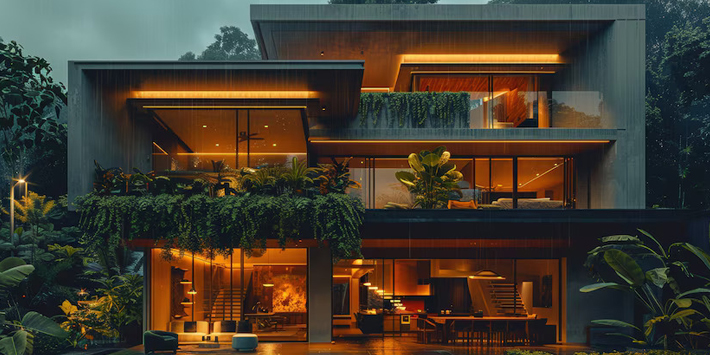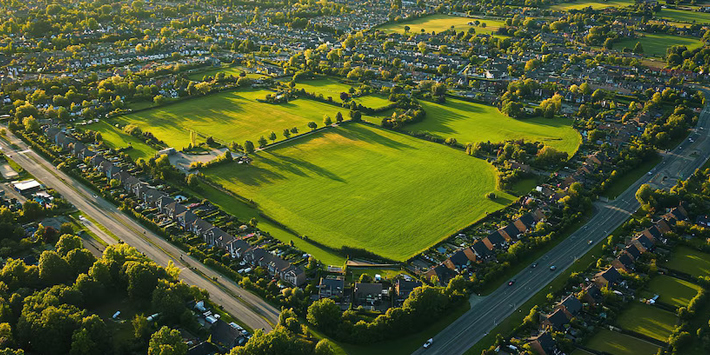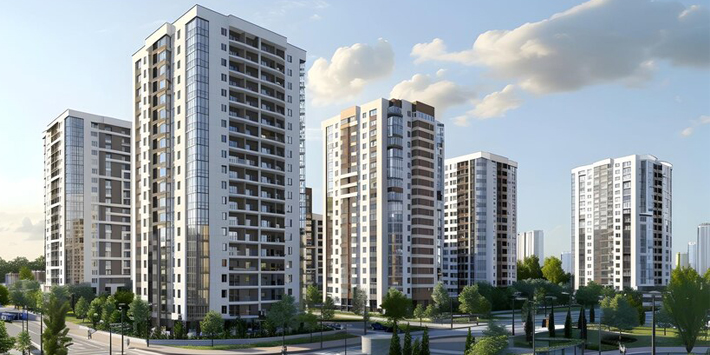Real estate usually increases in value over time, meaning you can be guaranteed a good long-term investment. Apartments and villas can be very beneficial since they bring rental income, providing a steady flow of cash.
Indeed, many families buy a home as part of long-term planning, which can offer stability to children. Homeownership encourages a sense of community, and permanence at home helps establish emotional security and stability in the family. These are some common reasons why people mostly choose to invest in real estate.
Pros of Buying Apartments:
Advantages of Location:
Apartments generally offer conveniences like educational institutions, hospitals, grocery stores, shopping centers, and entertainment venues, which can save time commuting.
Shared Amenities:
Most apartment complexes have shared amenities like gyms, swimming pools, and playgrounds.
Maintenance Services:
There is usually property management in apartments, which encompasses maintenance and repairs, providing a huge relief for the owners.
Security:
Gated communities and apartment complexes offer 24/7 security services, making for a safer abode than individual villas or plots.
Community Living:
Apartments help foster a sense of community where residents feel free to socialize and engage in daily activities.
Investment Potential:
Apartments are likely to appreciate well in well-developed urban areas and are said to yield better rental income, often proving more dependable than houses.
Less Upkeep:
Apartments typically do not require much upkeep compared to villas, making them ideal for busy professionals or those seeking a low-maintenance lifestyle.
Faster Occupancy:
Purchasing an apartment is a quick way to occupy a property compared to starting from scratch by building a villa or house.
Shared Costs:
Apartments have reduced overall risks related to property ownership compared to free-standing houses. The shared costs of maintenance and amenities lower the risks associated with property ownership.
Cons of Buying an Apartment:
Less Privacy:
The apartment units share walls and common areas, which can lead to noise and a lack of privacy.
Association Fees:
Your total costs could increase due to monthly payments for amenities and maintenance, along with Homeowners’ Association fees.
Restrictions:
Apartment living comes with rules and regulations set by the Homeowners’ Association, limiting personal choices in alterations.
Market Saturation:
In some geographic locations, a surplus of apartments may depress resale values.
Fewer Private Outdoor Areas:
Most apartments do not offer private outdoor spaces, which can be a downside for those who enjoy gardening or outdoor activities.
Vulnerability to Management:
Quality of life will depend on the skill of property management, which can vary significantly among different firms.
Long-term Value:
In some cases, apartments might not appreciate as much in value as free-standing houses, potentially impacting your investment.

Pros of Choosing Villas:
Space and Convenience:
Luxurious villas usually provide more square footage, both inside and outside, making them suitable for large families or hosts.
Privacy:
With fewer shared walls and private outdoor spaces, villas typically offer higher privacy compared to apartments.
Personalization:
Villa owners have a greater opportunity for customization and making individual changes to their homes.
Outdoor Areas:
Most luxurious villas boast gardens, patios, or pools that can be used for unwinding, gardening, and family activities.
Luxury Amenities:
Luxurious villas are often equipped with opulent facilities such as private pools, gyms, and beautifully designed gardens, enhancing the living experience.
Community and Exclusivity:
Many villas are located in gated communities, providing complete safety features and an exclusive lifestyle.
Family Friendly:
Villas generally offer more space and safety, making them ideal for families where children can play and grow up.
Appreciates Over Time:
Villas are said to appreciate over time, especially when situated in desirable locations, making them a good investment.
Noiseless:
The quality of life in villas is often better due to reduced noise pollution from nearby apartments.
Lifestyle Opportunities:
Luxurious villa houses provide opportunities for recreational lifestyles, including gardening, outdoor sports, and hosting parties.
Cons of Choosing Villas:
Higher Cost:
Villas are generally more expensive than apartments, which can be a heavy burden for first-time homebuyers.
Maintenance Burden:
All maintenance and repair responsibilities fall on the owner, which can be both time-consuming and costly.
Poor Access to Amenities:
Most villas are located in suburban areas, which may be far from daily amenities, workplaces, and educational institutions.
Lower Density:
In some areas, villas may offer less community interaction compared to apartments, where neighbors are closer in proximity.
Construction Time:
If buying a plot to build a villa, construction can take a long time, delaying the ability to occupy the property.
Investment Risks:
Villas may appreciate more slowly in certain markets compared to apartments, and they are not as abundant as apartment communities with shared amenities.
Flexibility:
Selling a villa can be more challenging than selling a smaller apartment, especially if you need to relocate.
Environmental Factors:
A large house consumes more energy for heating and cooling, leading to higher utility costs.

Pros of Buying a Plot:
Customization:
You are always free to design and build your dream home according to your specifications and preferences.
Investment Prospect:
Land appreciates greatly over time, often more than built properties, making it a good long-term investment.
Less Maintenance:
A vacant plot usually requires less maintenance than a built property, especially when not actively developing it.
Space and Privacy:
You can choose a plot in an area that offers more space and privacy compared to high-density living situations.
No Immediate Pressure:
You have the flexibility to plan and build at your own pace without the pressure of finding or financing a ready property.
Location Selection:
You can select a location that suits you best—whether urban, suburban, or rural—ensuring access to necessary amenities like grocery stores, shopping centers, and educational institutions.
Cons of Buying a Plot:
Development Costs:
Plot development can be very costly, and expenses may overrun during construction, making it less predictable compared to purchasing a ready property.
Time-Consuming:
The entire process of planning, permitting, and constructing a house can be lengthy and involve significant time investment.
Utilities and Infrastructure:
Some locations may lack access to basic utilities like water, electricity, and sewage, increasing development costs.
Market Risks:
Land values can vary, so there is no guarantee of appreciation, particularly in less desirable areas.
Financing:
Obtaining financing for land tends to be stricter, making it more difficult than financing a built property.
Little Actual Use:
When you buy a plot of land, you do not derive immediate benefits as you would from living in a house, often requiring a wait to see returns on your investment.
Environmental Factors:
Factors such as flooding, soil quality, and land stability can affect your investment and development plans.
Conclusion:
Real estate is significant in retirement planning as it provides a stable place to stay and can generate rental income from the property.
Ownership of land enhances quality of life and presents future opportunities for development, whether for personal use or investment. Having a permanent home fosters emotional security and stability within the family. Bud Realty is the leading property consultant in Bangalore, specializing in discovering and recommending the right properties. We can assist you in finding homes that fit your budget and needs. Reach out to Bud Realty to find your perfect home in a wonderful locality.








Add comment